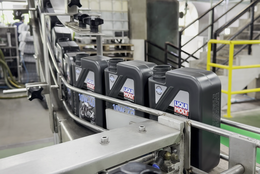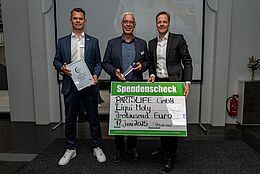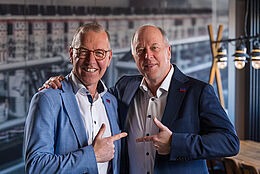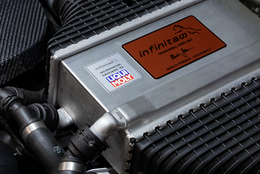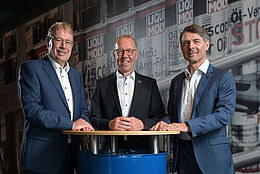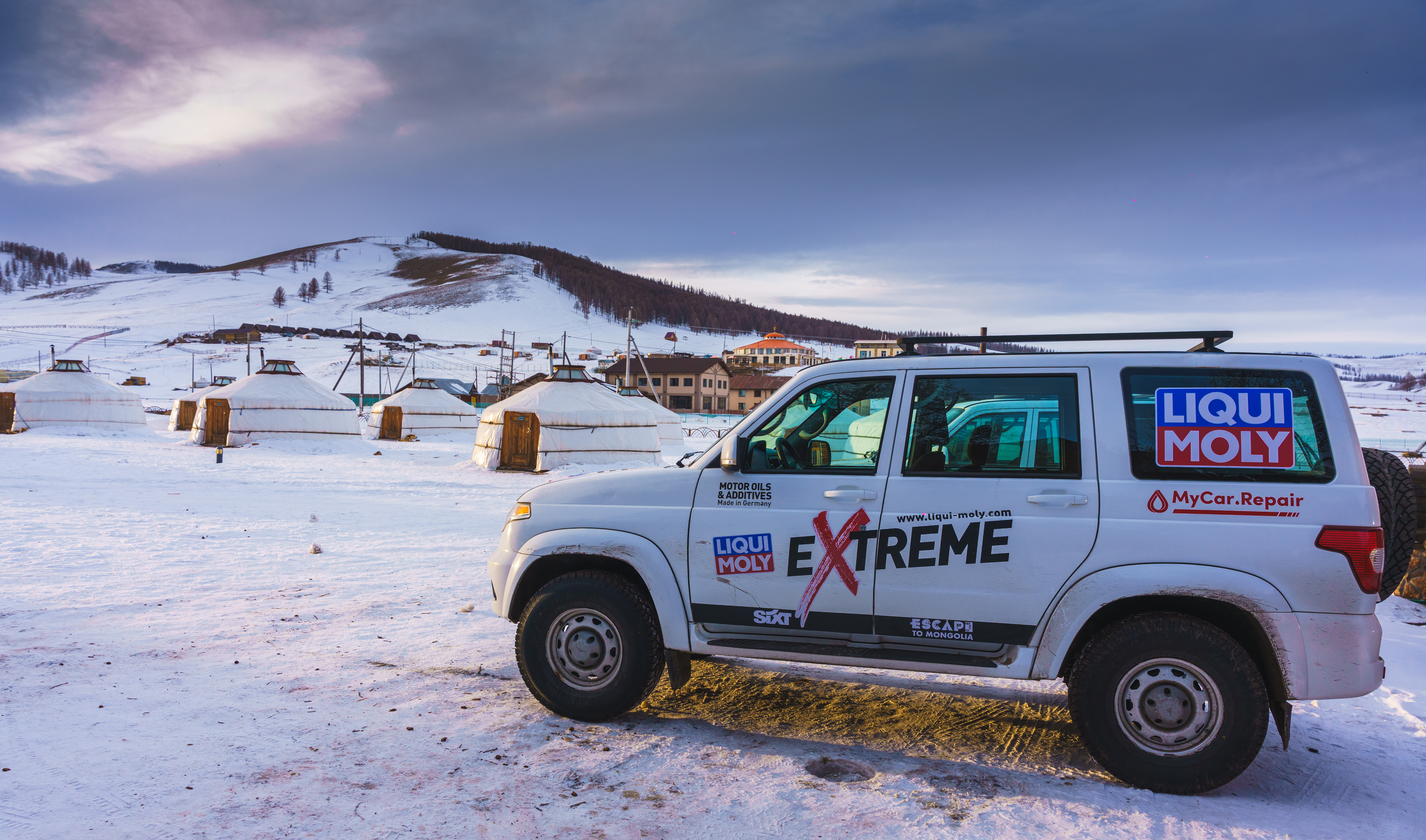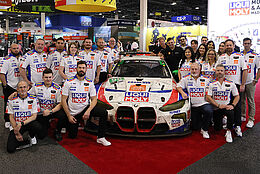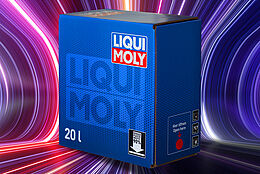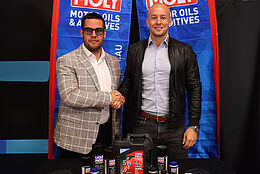- 11/23/2023
LIQUI MOLY invests 8 million euro in the expansion of its production in Ulm





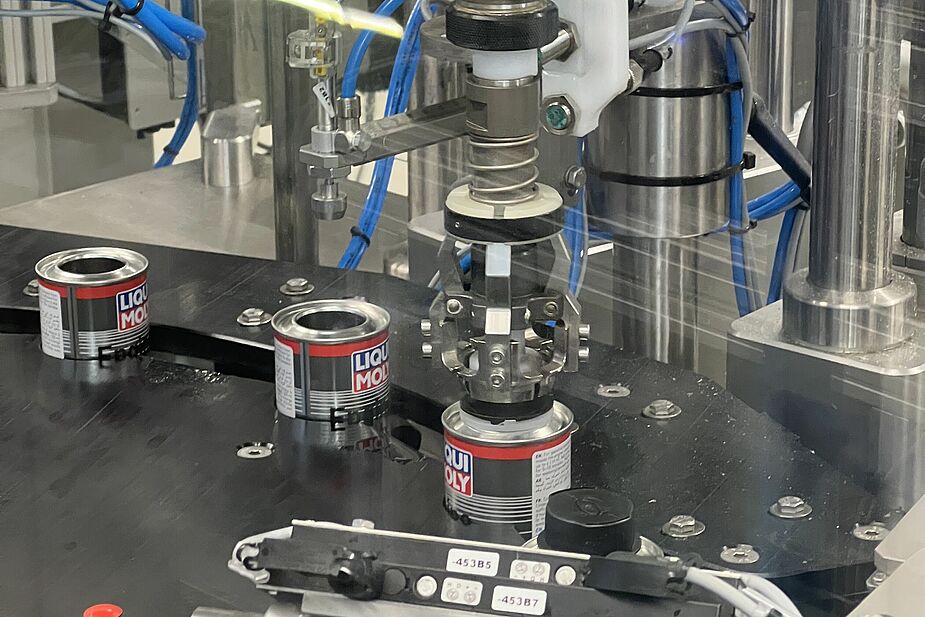
LIQUI MOLY is opening a new chapter at its headquarters in Ulm: Managing Directors Günter Hiermaier and Dr. Uli Weller inaugurated the new building for the production of additives with three modern dispensing systems and additional office space. The new machines increase the maximum output from 346,000 cans per week to up to 481,000. “The kick-off marks a milestone on our way to achieving our joint sales target of 1 billion euro,” said the Managing Director in front of representatives from politics, business, the media and the workforce.
LIQUI MOLY has invested 8 million euro in the newly opened additive production facility. Of these, 3.4 million euro are attributable to the turnkey building. The costs for the three new dispensing systems amount to 3.1 million euro. Conveyor technology and packaging robots account for 1.4 million euro. These machines will be fully installed and commissioned over the course of next year. Additives help engines to burn fuel cleanly, emit less pollutants and have a longer service life. They can be used as a prophylactic or problem solver. LIQUI MOLY develops and manufactures all additives in Ulm.
“These investments are a commitment to the Ulm site and thus to Made in Germany. We create more jobs and give people a long-term perspective,” says Günter Hiermaier. Of course, the machines have an impact on the employees, but contrary to what may be assumed: New machines do not mean fewer people, but a growth in jobs in other areas as well, because more is produced. And working conditions will continue to improve. “LIQUI MOLY is a modern employer. People should and must feel comfortable working here with us. This is what we demand of ourselves,” said the Managing Director. That’s why 200 square meters of space were created for state-of-the-art offices on the third floor, in addition to the 400 square meters of production space spread over two floors.
The conditions during the construction phase were less pleasant. The production building between the existing production and the administration building was constructed during ongoing operation. Under difficult circumstances, the employees in work preparation and production kept the company running at full speed. “That’s why I would like to express my special thanks to them and all those responsible for the project,” said Günter Hiermaier. The LIQUI MOLY Managing Director also thanked Jörg Murawski, Managing Director of Würth Elektronik and Executive Vice President of the Würth Group, to which LIQUI MOLY has belonged since the beginning of 2018: “Würth gave us free rein in all decisions, and at the same time security and also a lot of know-how. Würth supported us in all phases of the project, and strengthens us with profitable cooperation and trust in our chosen path.”
Like the company’s headquarters, the new property is also located in the Ulm district of Lehr. Founded in 1957 in the center of the city, the company relocated its headquarters to the north of Ulm in 1978. Rapid, constant growth and the resulting increase in space requirements had led to this decision. Since then, it has been home to all corporate areas, from development to production and administration.
LIQUI MOLY has grown from a small Ulm-based company into a global player whose products are available in 150 countries. Today, 408 people work at the company headquarters in Ulm. The worldwide workforce numbers 1093. Günter Hiermaier: “The ‘little additive shop’ with just 30 employees, at which I started 33 years ago, has become a company that generated 800 million euro in sales in 2022.” Soon it is to reach 1 billion. That is the goal. Even if the market in the EU is likely to change in the long term, the Managing Director sees immense growth potential: “Even after 2035, the majority of the vehicle fleet will still be powered conventionally. After all, the market for combustion engines continues to grow in parallel. This is often forgotten.” According to a forecast by the consulting company Frost & Sullivan, the increase in oil demand worldwide is even more significant. This assumes a growing consumption of 15.5 million tonnes in 2018 to up to 22 million tonnes in 2040. The trend is then expected to continue rising. “These calculations were made on the assumption that global sales of electric cars will account for 20 percent of all vehicles sold. This is also a reason why we have modernized our additive production and increased capacities,” says Günter Hiermaier.
He views the expansion of additive production as an immense step forward. In exceptional years, 18 million cans from 150 ml to 1 liter in size were filled with the existing machinery. Around 25 million units will be possible in the future. Two very old machines were scrapped. “Thanks to loving maintenance, they had been in service for many decades. But the required output quantities could no longer be achieved with them,” says Günter Hiermaier. The three new systems are more powerful and require less maintenance – the best equipment for further growth.











